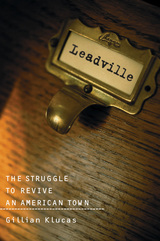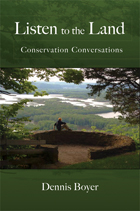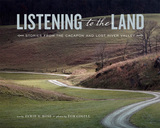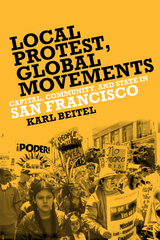5 start with L start with L

Leadville explores the clash between a small mining town high up in Colorado's Rocky Mountains and the federal government, determined to clean up the toxic mess left from a hundred years of mining.
Set amidst the historic streets and buildings reflecting the town's past glory as one of the richest nineteenth-century mining districts in North America-a history populated with characters such as Meyer Guggenheim and the Titanic's unsinkable Molly Brown-the Leadville Gillian Klucas portrays became a battleground in the 1980s and 1990s.
The tale begins one morning in 1983 when a flood of toxic mining waste washes past the Smith Ranch and down the headwaters of the Arkansas River. The event presages a Superfund cleanup campaign that draws national attention, sparks local protest, and triggers the intervention of an antagonistic state representative.
Just as the Environmental Protection Agency comes to town telling the community that their celebrated mining heritage is a public health and environmental hazard, the mining industry abandons Leadville, throwing the town into economic chaos. Klucas unveils the events that resulted from this volatile formula and the remarkable turnaround that followed.
The author's well-grounded perspective, in-depth interviews with participants, and keen insights make Leadville a portrait vivid with characterizations that could fill the pages of a novel. But because this is a real story with real people, It shows the reality behind the Western mystique and explores the challenges to local autonomy and community identity brought by a struggle for economic survival, unyielding government policy, and long-term health consequences induced by extractive-industry practices.
The proud Westerners of Leadville didn't realize they would be tangling with a young and vigorous Environmental Protection Agency in a modern-day version of an old Western standoff. In the process, Klucas shows, both sides would be forced to address hard questions about identity and the future with implications that reach far beyond Leadville and the beautiful high valley that nurtures it.

Each of the extraordinarily varied perspectives that Boyer recreates here considers the question, How do I interact with the Earth? Each has something important to say that expands our understanding of conservation and environmentalism. Listen to the Land encourages you to read a conversation or two and then go outside and start one of your own.

Although still rural and mostly forested, development and land fragmentation in the Cacapon and Lost River Valley have increased over the last decades. Listening to the Land: Stories from the Cacapon and Lost River Valley is a conversation between the people of this Valley and their land, chronicling this community’s dedication to preserving its farms, forests, and rural heritage.

Local politics in the United States once seemed tranquil compared to the divisiveness and dysfunction of the country’s national politics. Those days have passed. As multiple wide-ranging crises have thrust America’s local governments into the spotlight, they have also exposed policy failures and systemic problems that have mounted for years. While issues such as policing and the cost of housing are debated nationally, much of the policymaking surrounding these issues occurs locally. In Local Interests, Sarah F. Anzia explores how local governments—and the interest groups that try to influence them—create the policies that drive the national conversation: policing, economic development, housing, and challenges of taxing and spending.
Anzia examines local interest groups in terms of the specific policies they pursue, including how these groups get active in politics and what impact they have. By offering new perspectives on these issues, Anzia contributes to our knowledge of how interest groups function and the significant role they play in shaping broader social outcomes.

Using San Francisco as an illuminating case study, Beitel analyzes the innovative ways urban social movements have organized around issues regarding land use, housing, urban ecology, and health care on the local level to understand the changing nature of protest formation around the world.
Reconciling the passing of New Left Ideals and the emergence of mobilization on a global scale, he assesses the limits of contemporary urban movements as conduits for advancing a radical political program. Beitel argues these limits reflect recurrent problems of internal fragmentation, and the manner in which liberal democratic institutions structure processes of political participation and interest representation.
READERS
Browse our collection.
PUBLISHERS
See BiblioVault's publisher services.
STUDENT SERVICES
Files for college accessibility offices.
UChicago Accessibility Resources
home | accessibility | search | about | contact us
BiblioVault ® 2001 - 2024
The University of Chicago Press









